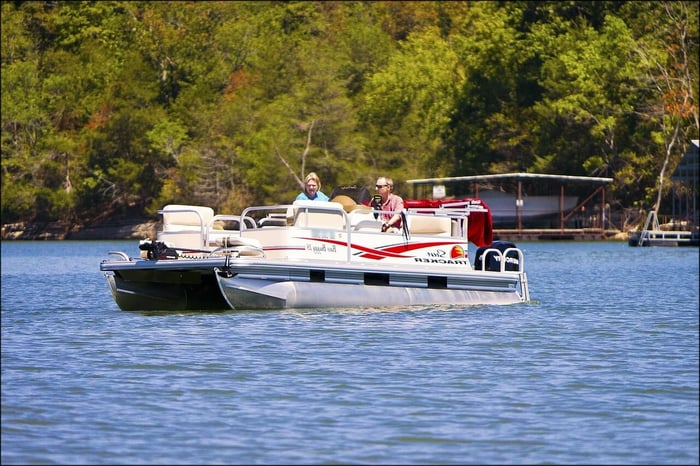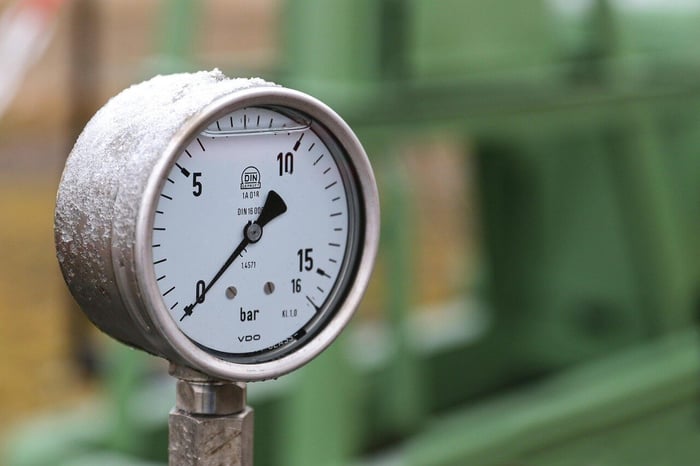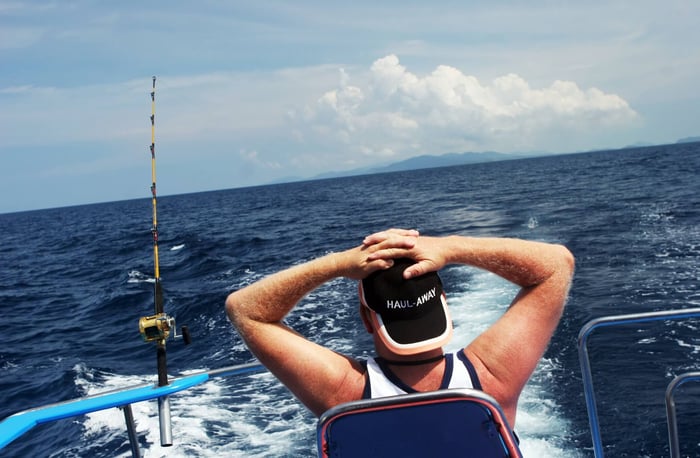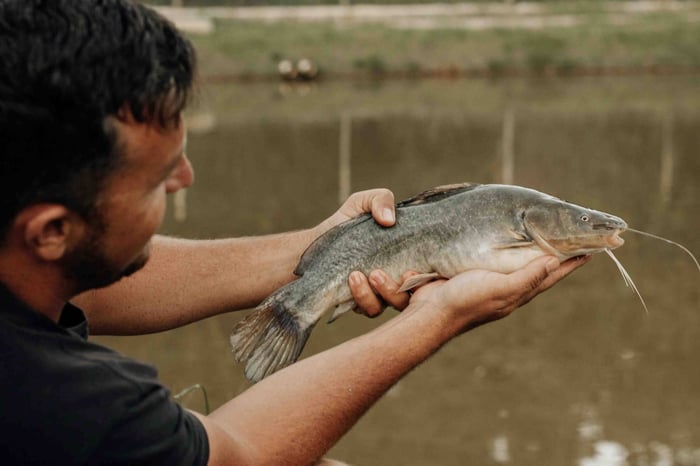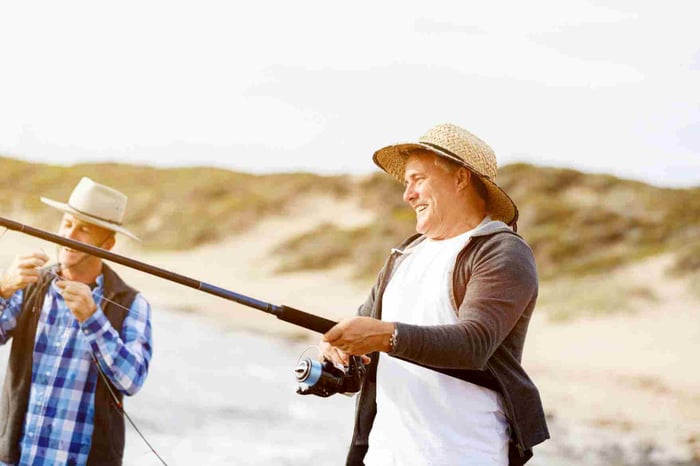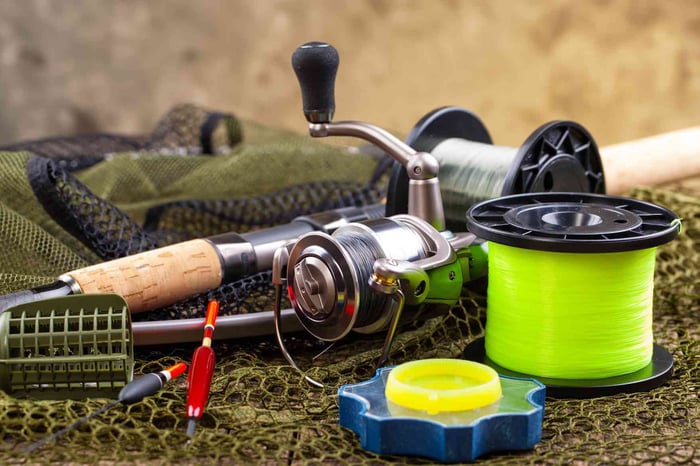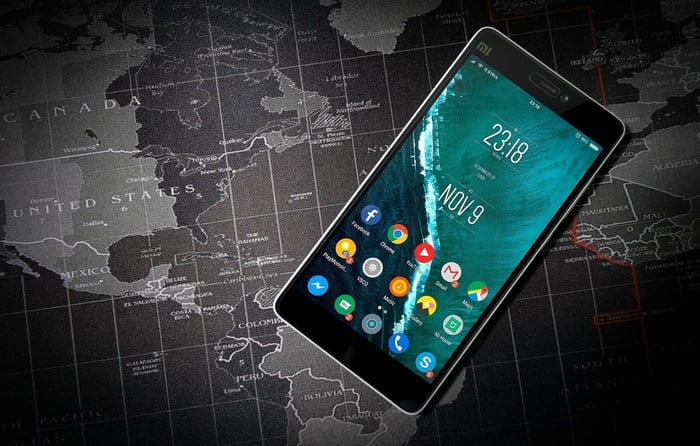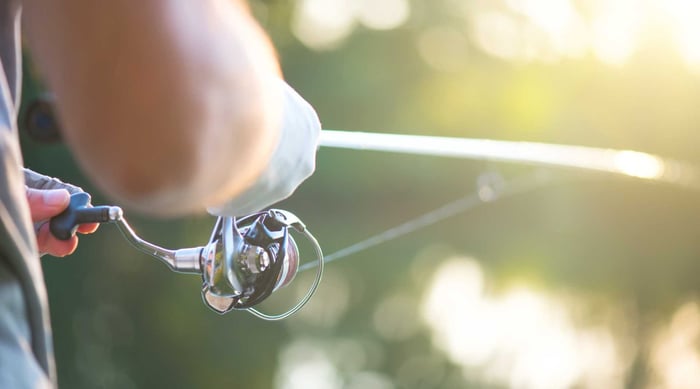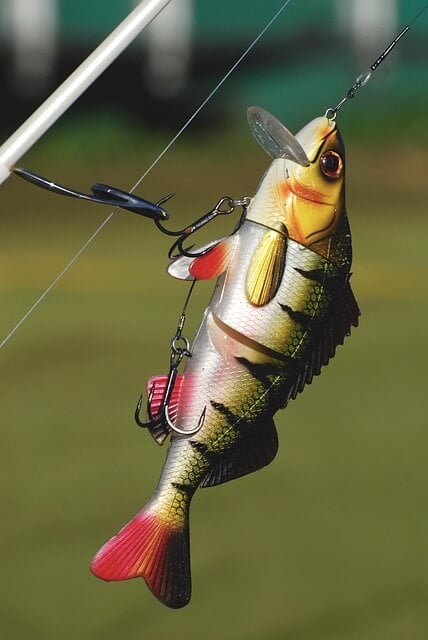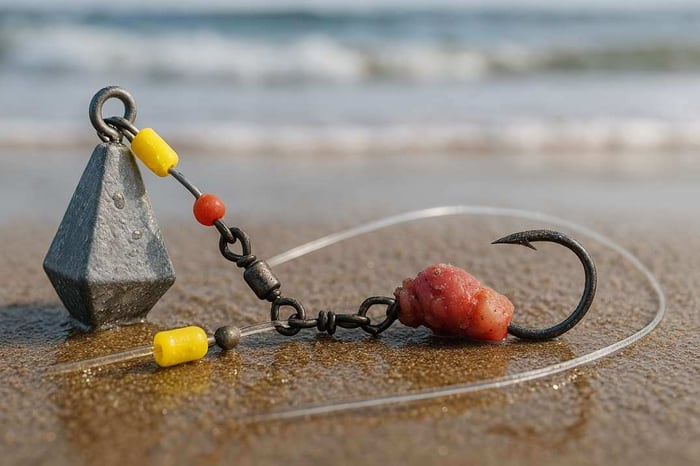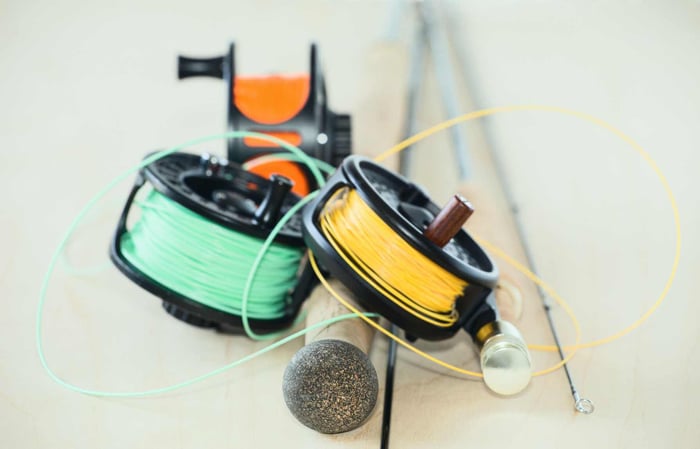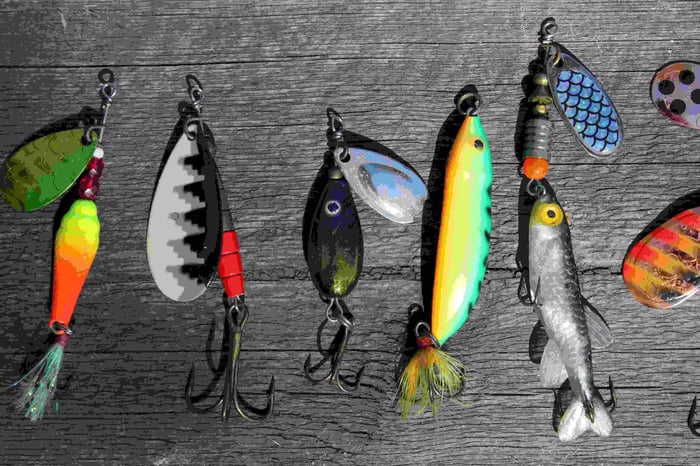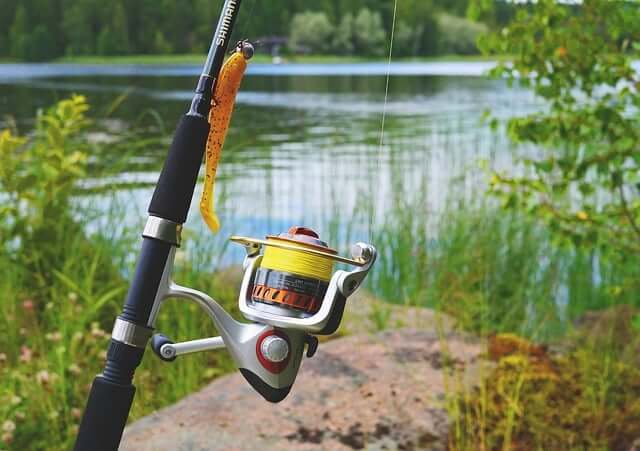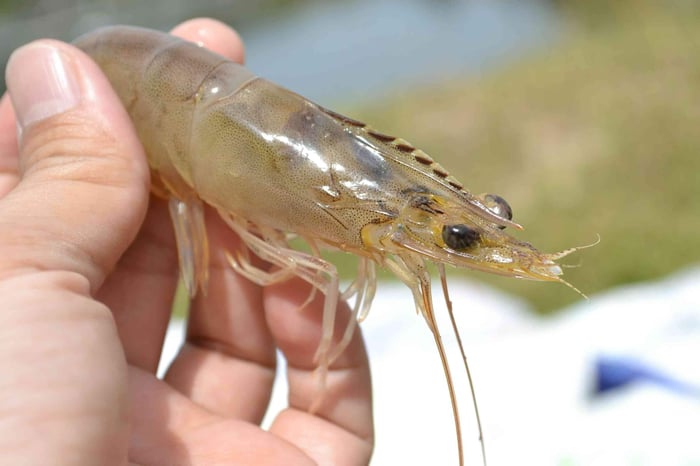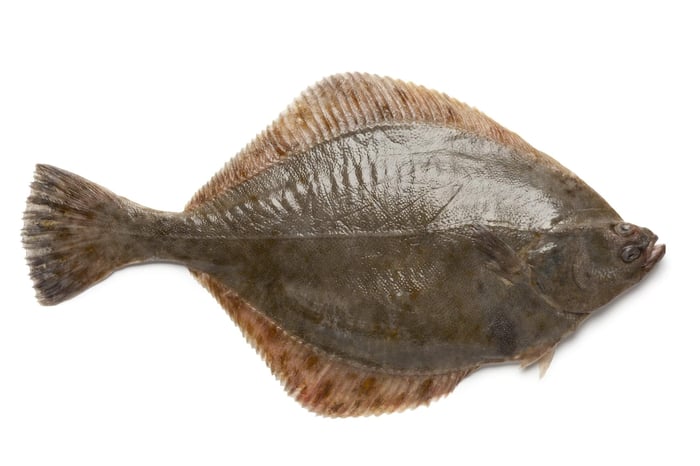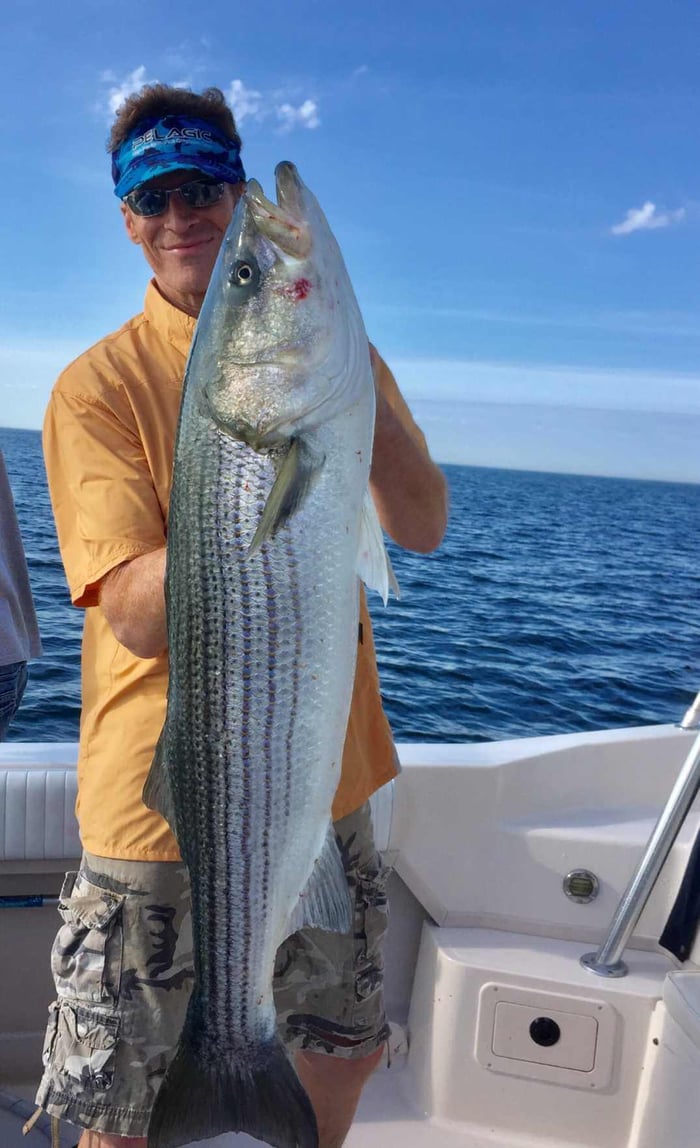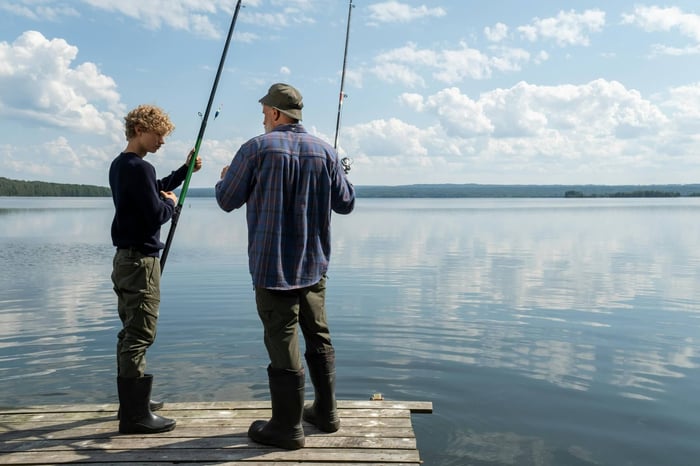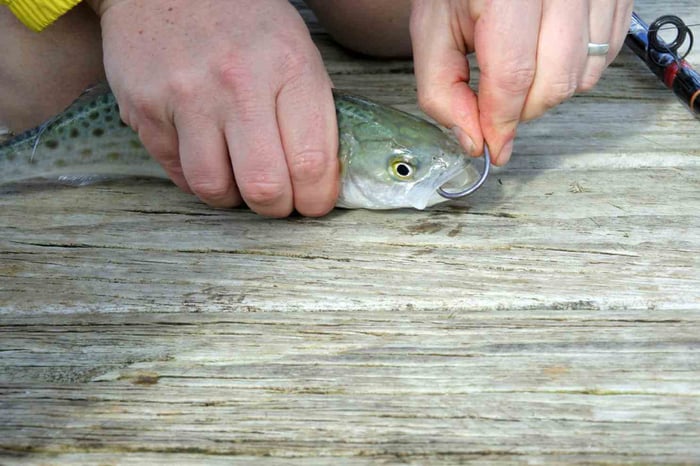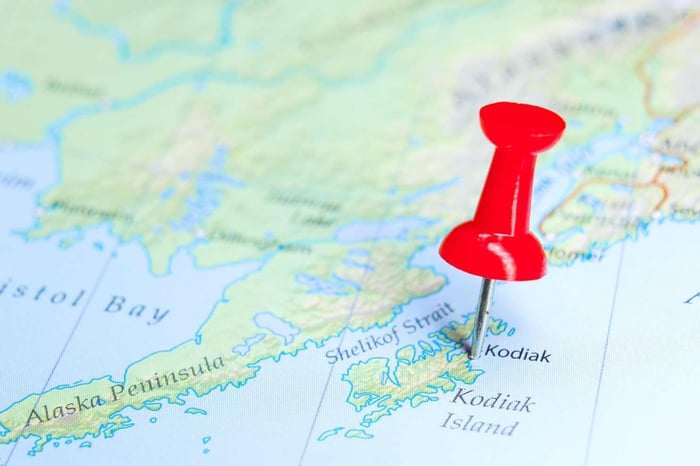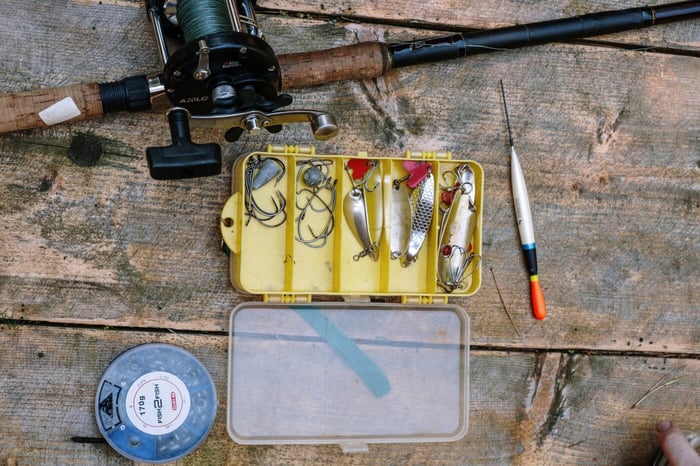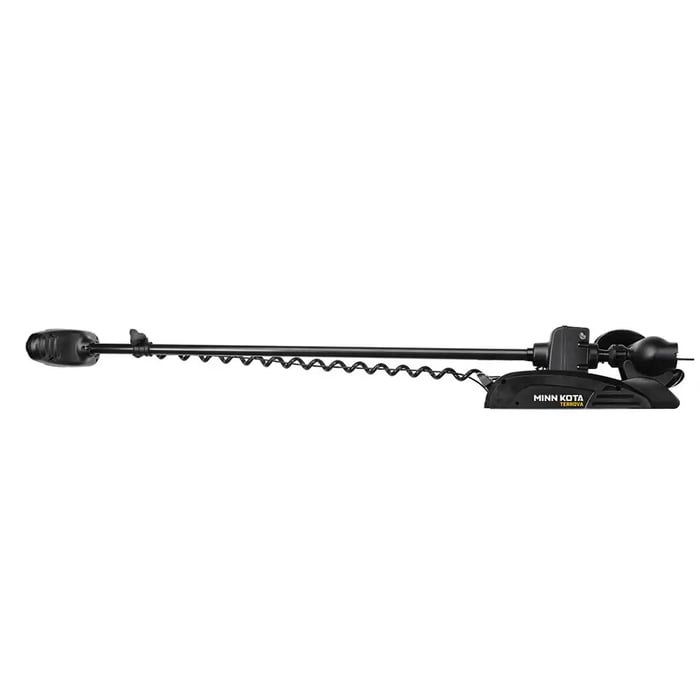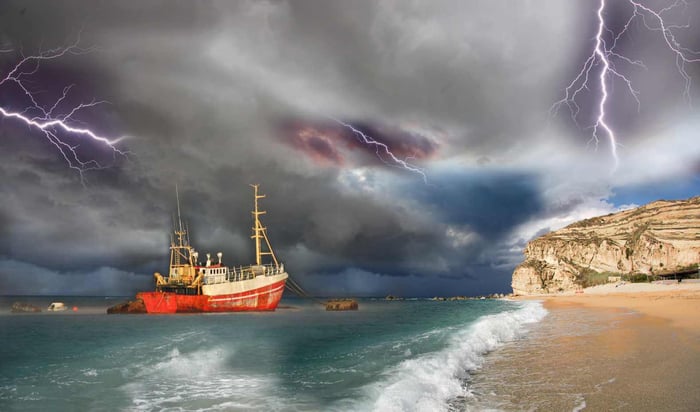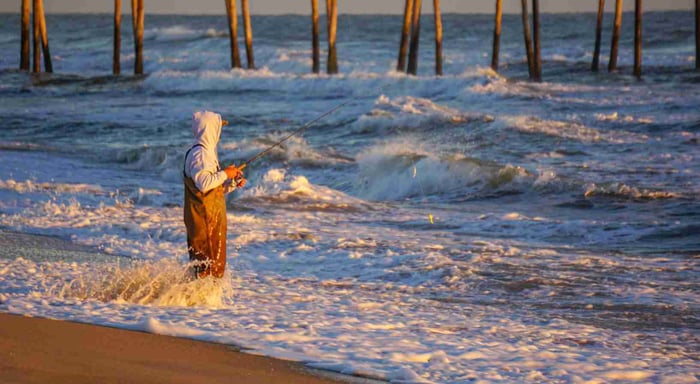Table of Contents
Small Pontoon Boat: For Quality Fishing
Getting ready to spend more time on the water? But then, you don't really want the hassle of a huge boat. Here's the perfect recommendation for you: a small pontoon boat.
Large pontoons are designed for groups and special trips. Small pontoon boats are light, compact, and very easy to use.
In their simplest form, pontoon boats are a level deck riding on two or more flotation "pontoons," typically made of aluminum or inflatable material.
They range from 12 to 20 feet in length and are simple to tow, launch, and store even with a small car or limited garage space.
Honestly, the benefits are too overwhelming to be overlooked. Portability is one big plus: you can tow a compact pontoon to almost any lake or secluded river without outbursts of massive permits or specialist tow vehicles.
Because they are so accommodating, you can outfit them for almost any purpose, from fishing remote bodies of water to tooling about on a weekend afternoon with the family or watersports on random afternoons.
And they run considerably cheaper than similarly sized fiberglass boats, both to purchase and to keep.
So, what's next? Perhaps the most challenging part is selecting the ideal small pontoon boat for you. It should be perfect enough for where you'll be boating and how many people you'll be taking along with you. Also, what you do with the boat matters!
But don't worry. Pontoon models are designed to fit almost every boat enthusiast. That is, whether you want a swivel-seating or a livewell-equipped boat for fishing. Or perhaps just small inflatables for chill adventures. So, stay seated!
In this article, we'll guide you through everything you need to do to select the perfect pontoon for your next water outing.
Understanding Small Pontoon Boats
But what really makes a pontoon boat is its level, stable deck. It creates a wide, practical surface that remains stable underfoot, even when people are moving around. That's a definite plus for fishing, parties, or simply relaxing with a cooler and some good chairs.
And another definite plus is the shallow draft. Pontoons sit on top of the water more than V-hull boats, which means that you can cruise shallow coves and hidden inlets where other boats will be aground.
Some good news for you. Operating a small pontoon is easy. They have an easy outboard motor, simple steering systems, and minimal onboard systems.
This makes them suitable for beginner boaters or those who don't need or don't want to experience the learning curve and the cost of upkeep of larger boats.
Materials also classify pontoons. The most commonly used are aluminum pontoons. These are prized for durability, light weight, and corrosion resistance.
Inflatable pontoons, commonly found in small fishing vessels, simplify transportation and storage while retaining high stability.
Composite decking, made from new plastic composite or marine-grade plywood, reduces weight and is resistant to rot, maximizing durability.
Overall, these characteristics make small pontoon boats a convenient and enjoyable option for any recreational boating. It's a good option for you whether you're in for a casual lake cruising or 'aggressive' fishing expeditions.
Types of Small Pontoon Boats
One of the greatest advantages of small pontoon boats is their convenience in being customized to fit your specific activity.
For instance, if you like starting early morning breaks on the water with a rod in hand or afternoons running the rounds with friends, there's a specialty boat for your fancy.
Let's take a look at the most popular types and why each one is so special. Shall we?
A. Pontoon Fishing Boats
Pontoon fishing boats are designed to help you fish more effectively. They give you a strong, steady platform to stand on. They also have smart storage and setups that anglers need.
Features:
Swivel Fishing Chairs: Spin chairs allow you to turn and cast in any direction. You don't even have to stand up or move around.
Rod Holders: Stationary holders keep your rods securely in place. So, you can rest assured they're intact while trolling. It's also perfect for stowing extra setups.
Livewells and Tackle Storage: Livewells included prevent the catch or bait from spoiling during the day, and under-seat storage for tackle keeps gear organized.
☑︎ Sun Tracker Bass Buggy 16 XL Select
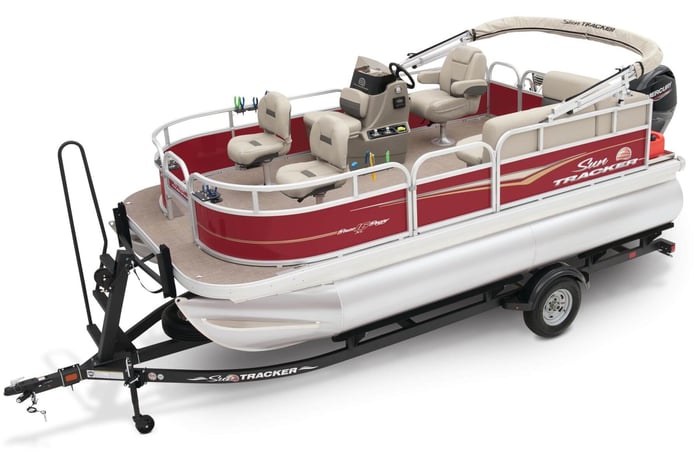
Take, for example, this compact fishing pontoon. It is a cabin favorite among freshwater anglers. At only 16 feet in length, it's easy to tow and launch, yet still provides space for people and equipment.
Specs:
Length: 16'
Beam: 8'
Max HP: 50
Capacity: 7 or more people
Highlights: Two bow fishing chairs, an aerated livewell, rod holders, and a spacious lounge to sit. This gives you an extra 'space' in between casts.
What's in it for you? Well, it is durable enough to stand and cast without wobbling. Foot-print-narrow, efficient cruising design for navigating through congested waterways. Plus, it has smooth, easy-to-clean deck surfaces.
B. Leisure Cruising Pontoon Boats
If your dream day on the water is floating around with family and friends, a leisure cruising pontoon is the ticket. They are about partying and lounging, not fishing or high-performance.
They are best for scenic lake cruises, relaxed river windings, and sunset cruises with friends.
Features:
Luxurious Seating: Wraparound lounges and high-back captain's chairs. This is perfect if you plan to stay for long days on the water.
Canopy Shade: A Bimini top is standard to protect you from the scorching sun.
Bluetooth Sound System: Cruise to your favorite music.
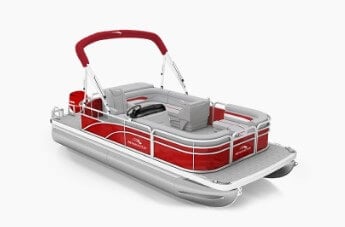
Looking for a model of this kind? Bennington is famous for luxury, yet affordable pontoons. The 188 SVL brings upscale seating together with functional features in a compact package.
Specs:
Length: 18' 4"
Beam: 8' 6"
Maximum HP: 60
Capacity: Up to 7 people
Highlights: Woven vinyl deck, pillow-top plush lounging, and fingertip helm controls. An optional portable table and a premium sound system.
Why is it ideal for cruising? For starters, all ages will be comfortable here. It remains smooth and stable, cruising effortlessly through rough water. It's a quality fit and finish at a budget price.
C. WaterSports Pontoon Boats
For faster speed and performance for tubing, wakeboarding, or waterskiing, use a sport pontoon. A sport pontoon unites the stability of a pontoon with the horsepower of a runabout.
Features:
Increased Horsepower (60–150 HP): Increased horsepower enables you to tow tubes and skiers with ease.
Ski Tow Bar: A specifically designed tow point prevents ropes from getting caught in the deck.
Strengthened Deck: Increased bracing and heavier building resists increased-speed stress and towing.
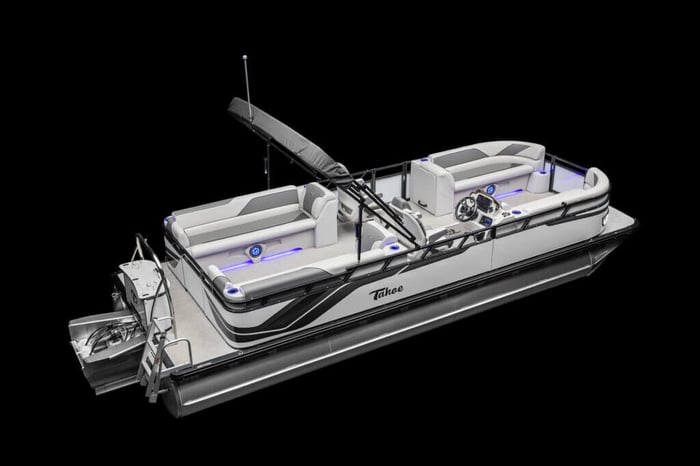
Specs:
Length: 18' 6"
Beam: 8' 6"
Maximum HP: 90 (upgradable)
Capacity: 9 people
Highlights: Sport interior package with hard floor, upgraded helm, and performance pontoons for improved handling.
Why is it perfect for watersports? It requires sensitive handling at high speeds. They have a standard ski tow bar and ladder. Plus, how can you say no to a lounge space to relax after the thrill?
D. Inflatable Pontoon Boats & Mini
Not everyone requires or wants a trailerable aluminum pontoon. If portability, single-user fishing, or low storage is your priority, inflatable pontoons are the best option.
This is best for single trips on small rivers or lakes. Why? Because of its immediate setup and launch.
Features:
Lightweight Chassis: Typically constructed from powder-coated steel or aluminum, featuring foldable components for easy storage.
Inflatable pontoons are constructed from heavy-duty PVC or abrasion-resistant materials, providing buoyancy and stability.
Easy Setup: Most models inflate in less than 15 minutes. You just need to use an electric pump or a foot pump.
Classic Accessories Colorado XT Inflatable Pontoon Boat
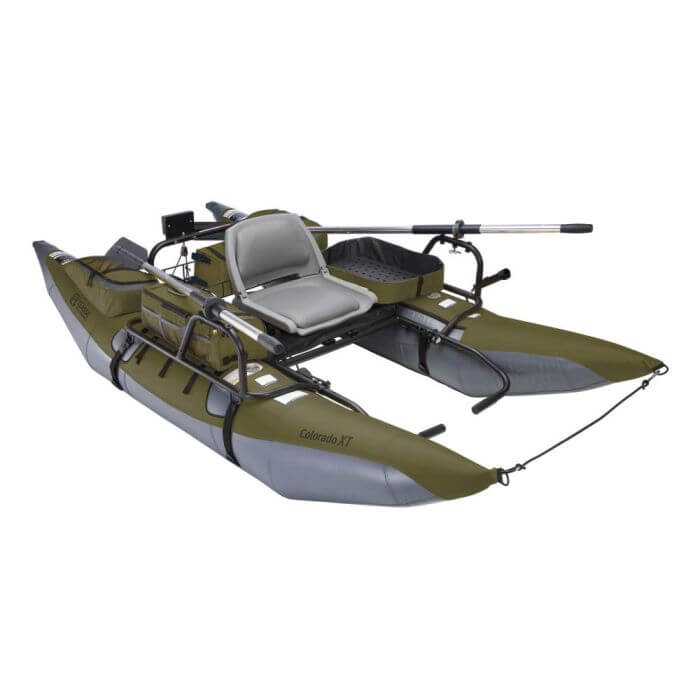
This best-selling inflatable fishing pontoon is an excellent choice for good reason—it's easy to carry, tough, and filled with innovative features.
Specs:
Length: 9'
Weight Capacity: 400 lbs
Weight: 77 lbs (boat and frame)
Highlights: Removable gear bag with 20 pockets, rod holders, anchor system, and motor mount. It also features a transport wheel that allows it to roll out onto water.
Why is it perfect for portability? Well, it slides into most car trunks when deflated. It's a very simple setup and tear-down. As stated above, it is ideal for anglers who do not wish to invest in a trailer.
AT THE END OF THE DAY, choosing the right type of pontoon boat is all about your activity and what you will use and store. Narrow down what you intend to use your boat for. Find the model that fits exactly your dream boat. The boat should feel like it was made for your vacation. Regardless of whether it is for bass fishing at dawn or pulling a tube across the lake at dusk.
Match Your Adventure Style
Already made up your mind about which small pontoon boat is best for you? Great! Now, sit down and think about where and how often you'll be using it the most.
For instance, you plan to take it to flat, inland lakes often. In that case, you can choose nearly any design. There are tiny fish pontoons for cruising boats.
If you plan to go in shallow creeks or winding backwaters, choose a small pontoon with a shallow draft. These boats are easy to steer and work best in shallow water.
If going to saltwater bays or brackish water, you will want a boat built of rust-proof material. Preferably, one with a secure closure to safeguard your purchase.
Next, consider how many people you typically bring along.
A small pontoon boat is great for one person or a fun trip with a friend. But it's a different story if you want to take your whole family. Naturally, you will need more seats and space. A family boat should have enough room for everyone to relax or sleep comfortably.
What about your car's towing capacity? It's in your best interest to check it out as well. Most small pontoons are certainly lightweight enough to be towed behind a midsize truck or SUV. However, just to be safe, always double-check the towing capacity of your car before using a larger deck.
It is helpful to narrow down your needs to your essential list of requirements. If fishing is your primary purpose, then it's a no-brainer. Find one that offers swivel chairs, rod holders, and in-built livewells.
If you're looking for a boat for relaxing and fun rides, consider features such as comfortable seats, a shade canopy, and a stereo system.
If you want a boat for speed or water sports, you’ll need a strong deck and a more powerful engine.
Finally, consider whether you'd prefer to have a lot of open deck space or lots of built-in gear and supply storage.
I know these questions can be overwhelming. But having those questions on the table in the first place will make this entire process much easier. Plus, it makes sure you get to pick a pontoon boat that you'll love for years to come.
Key Features to Consider Before You Buy
There are numerous options available for small pontoon boats. It's important to know what to look for so you can focus on what matters most.
Here are the most important things to think about when you choose your boat:
Size and Capacity
Consider very seriously how many you expect to have onboard and what gear you typically take along. Even the biggest boat can get full-sized in no time if you are planning on having coolers, fishing gear, and other equipment, or water toys aboard.
Small pontoons, typically under 18 feet in length, are ideal for a single-person excursion or for you and a friend or two.
They are less difficult to handle, store, and launch.
If you regularly host large numbers of guests, consider selecting a model with a greater seating capacity and larger weight capacity, ensuring all your guests feel safe and comfortable.
Engine Power
The type of engine you have will also determine how you intend to use your pontoon.
If you are going to be cruising around at ease and some casual fishing on flat water, you can get away with a 20 to 50 horsepower motor.
However, if you plan to ski, tube tow, or engage in high-speed cruising for an hour, you require a motor with 60–150 horsepower.
Increased power provides increased capability, but it also consumes additional fuel and incurs higher overall expenses. Therefore, consider how often you'll actually utilize the increased speed.
Heavy frames and top-quality deck accessories will last years of use and exposure. Aluminum pontoons are especially well-liked since they're light, durable, and corrosion-resistant.
This is a plus if you'll be running in brackish or saltwater. Composite decking or marine-grade plywood is usually employed for the deck. It has excellent strength at a minimum weight.
Additionally, it's advisable to thoroughly study warranty coverage. A solid warranty can protect your investment and provide you with peace of mind.
Storage and Transport
Consider where you will store your pontoon and how you will tow it before purchasing it.
Ensure that you own a trailer large enough to safely tow your boat and that your tow vehicle is at least as large as or larger than your pontoon.
Most smaller pontoons are so light that you can tow them between locations yourself. However, pontoon sizes larger than a personal watercraft will need some extra help.
Consider whether you will store it safely at home or lease space. Planning ahead on all these issues will cause you less stress during the day.
Customization Options
Lastly, consider what upgrade or accessory will elevate your water experience to the next level.
A Bimini top is your best friend on sunny days. It provides the shade needed against harmful sun rays. Electronics, such as GPS chartplotters or fish finders, can contribute to safety and success in fishing.
Owners (like you) can also opt to upgrade seating. You can also include more storage compartments. Alternatively, if you'd like some music, consider featuring high-end sound systems to enhance your cruising experience.
Personalization is among the best aspects of a pontoon, so don't be afraid to get your equipment to suit your most cherished activities. There is no limit!
Final Thoughts: Tips for First-Time Buyers
It's a wise decision to purchase your first mini pontoon boat, but it's also easy to leave a few things behind in your excitement to get on the lake.
So, just pause and take a breath for a bit. Let's think this through, okay?
Start by checking the rules for the lakes and rivers where you will use the boat. Every place has different rules about registration, engine size, and safety gear.
Knowing these rules early will help you avoid surprises and fines later.
Regardless of whether you're purchasing a new or used boat, take the time to inspect it thoroughly. Inspect pontoons for damage, decking for soft areas, welds, railings, and upholstery.
Consider taking a seasoned boater with you, if possible, or have a marine surveyor inspect it, particularly when buying an older pontoon.
Also, budget realistically. Don't think only about the boat's price. Trailers, safety equipment, electronics, and accessories can add up quickly. You’ll also want to plan for ongoing expenses, such as insurance, fuel, and routine maintenance.
Where possible, arrange for an improved test run before making a purchase. This is the ideal time to test the boat's maneuverability, seating comfort, and whether the engine is responsive enough for your needs.
Lastly, think about resale value. A pontoon boat that has been kept in good condition with a sound maintenance history does stand the test of time.
You will never need to sell, but you can buy a good one and keep it well, and reap the reward someday if you want to upgrade.
